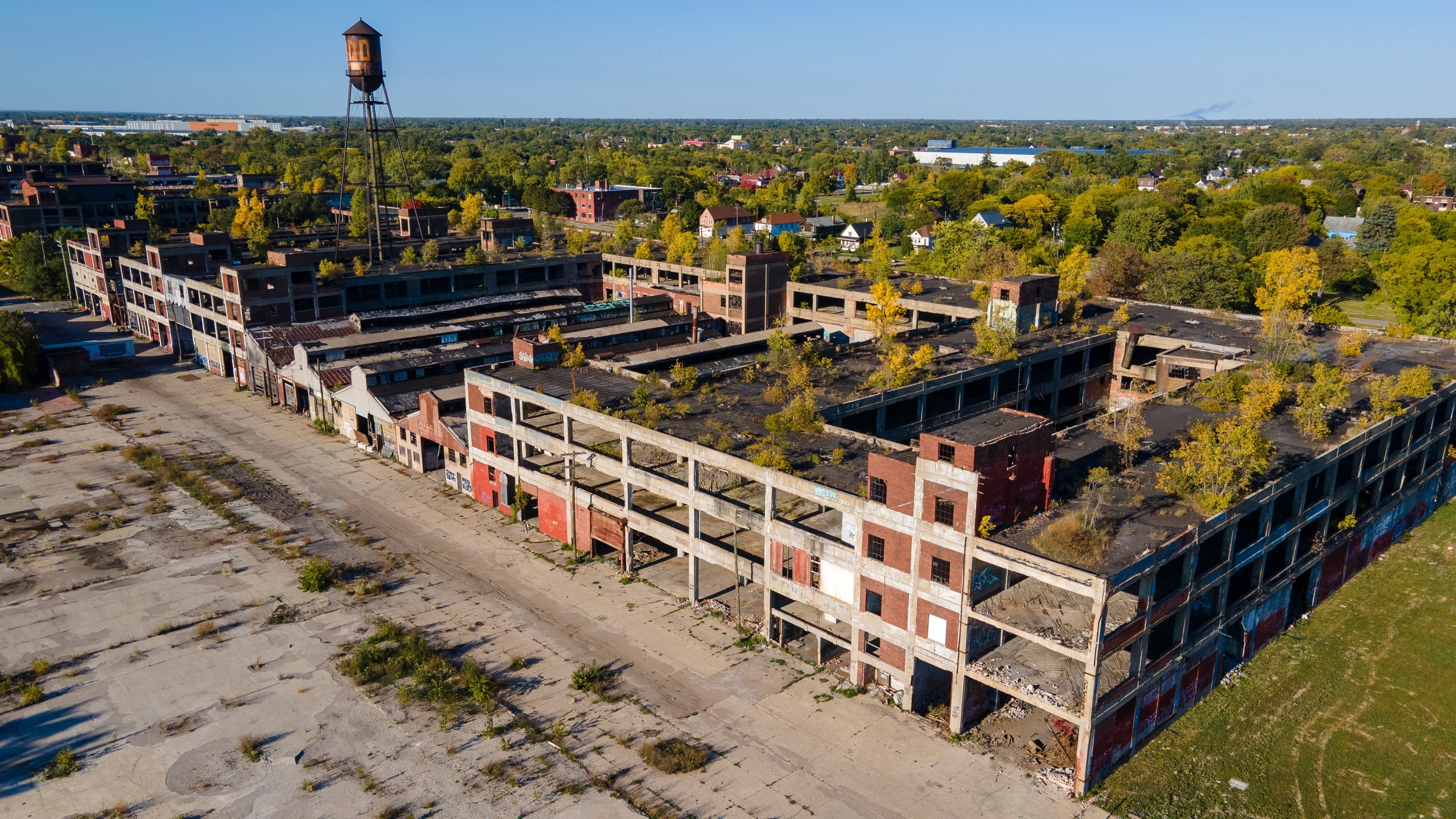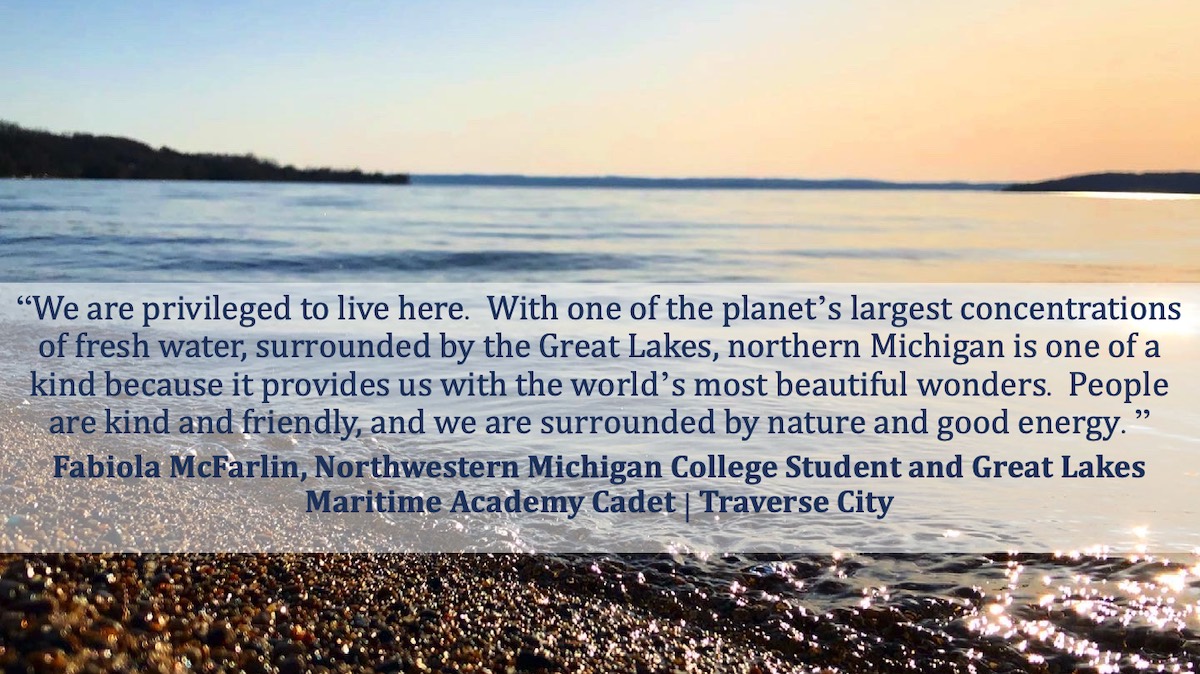





Northern Michigan is a region known for its natural beauty, sense of community, and outdoor recreational opportunities [81f0b57a]. In a survey conducted by Northern Express, 50 people from across the region shared their thoughts on what makes Northern Michigan special and what the future might look like [81f0b57a]. The responses highlighted the deep love and appreciation for the region, as well as concerns about the challenges of growth and the impact on the environment [81f0b57a]. However, there was also optimism about the region's potential to address these challenges and create a sustainable future [81f0b57a].
The labor market study conducted in the Upper Peninsula further emphasizes the importance of understanding the current state of the labor market and addressing its challenges [d2d56289]. The study reveals the need for programs that expose individuals to different careers, support for entrepreneurs, and talent retention and attraction efforts [d2d56289]. These findings align with the aspirations expressed by the people of Northern Michigan, who value the growth and development of businesses in the region and recognize the significance of attracting and retaining skilled workers [d2d56289] [81f0b57a].
However, there are misconceptions and negative attitudes towards the state of Michigan, particularly among some students at the University of Michigan [7217424d]. The author of an opinion piece in The Michigan Daily discusses the aversion that some students have towards the state and its residents [7217424d]. The author argues that this perception overlooks the importance and contributions of the rest of Michigan and highlights the misconceptions that non-Michiganders have about the state [7217424d]. The author also addresses the elitism and lack of appreciation for the state's progress that exists within wealthier areas like Ann Arbor [7217424d]. They argue that the University of Michigan can play a role in reshaping the perception of the state by promoting its development and respecting its diversity [7217424d]. The author emphasizes the importance of appreciating the good while recognizing the faults of the state and urges students to respect and contribute to the development of Michigan [7217424d].
A report by Michigan Future Inc. highlights the importance of high-education, high-wage jobs for Michigan's economic prosperity [efacc8f9]. The report states that Michigan ranks 39th in personal income per capita compared to the rest of the nation, primarily due to a lack of high-paying, knowledge-based jobs and a failure to attract young adults with bachelor's degrees [efacc8f9]. The report suggests that Michigan should focus its economic development efforts on knowledge-based industries such as chemical manufacturing, computer manufacturing, transportation manufacturing (excluding motor vehicles), information, finance and insurance, professional and technical, and company management [efacc8f9]. While the auto industry remains important, it is no longer driving growth or prosperity [efacc8f9]. The report also emphasizes the need to create places where young, college-educated individuals want to live in order to attract talent and grow the population with college graduates [efacc8f9]. However, the report acknowledges that promoting high-paid jobs for college graduates may create income distribution problems, which would need to be addressed with government resources [efacc8f9].
A recent article by Vance Ginn on Mackinac.org discusses Michigan's economic rankings and suggests strategies for improvement [72075b45]. According to the article, Michigan ranks 31st in economic freedom among U.S. states, with areas for improvement in government spending, taxes, and labor market regulations [72075b45]. The state's unemployment rate is 3.9%, with slow employment growth in industries like manufacturing and financial activities [72075b45]. Michigan's labor force participation rate is 61.7%, lower than the national average of 62.3% [72075b45]. Wage growth in Michigan has been slower than the national average [72075b45]. The article suggests lowering tax rates, streamlining regulations, implementing spending discipline, and reinstating a right-to-work law as strategies to improve Michigan's economic rankings and create a more robust economy [72075b45].
The Grand Island Chamber of Commerce in Nebraska recently published a summary of the city's incentives and financial tools for businesses [cd640fcb]. Community leaders were asked to share Grand Island's top advantages, and their responses highlighted various aspects of the city's appeal. Marcy Luth mentioned the skilled workforce, educational opportunities, healthcare, and transportation. Ken Nauert highlighted the collaboration among businesses. Police Chief Kevin Denney mentioned the amenities of a larger city without the drawbacks. Charlie Bosselman mentioned committed residents and the strategic location. Holly Wood mentioned the diversity in the economy. Kent Kaiser mentioned the sense of community. Matt Fisher mentioned the academy system at GIPS. These advantages contribute to Grand Island's bright future and advocates are encouraged to share them [cd640fcb].
Overall, the voices from Northern Michigan, the labor market study, the report by Michigan Future Inc., the article on Mackinac.org, and the insights from the Grand Island Chamber of Commerce highlight the importance of exploring different career paths, supporting entrepreneurs, attracting and retaining talent, and balancing government favoritism with economic freedom for the sustainable growth and development of Michigan and Grand Island, Nebraska [d2d56289] [81f0b57a] [efacc8f9] [72075b45] [cd640fcb].